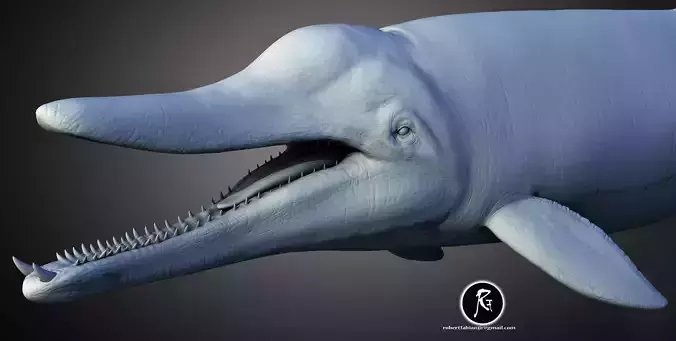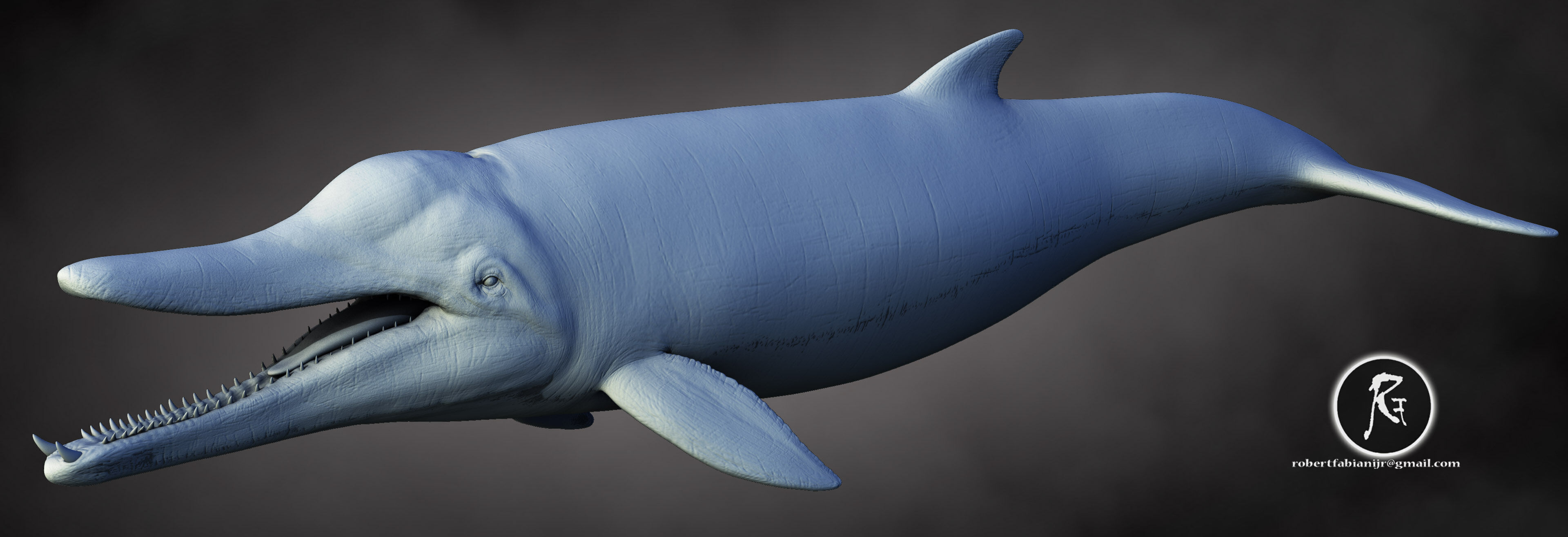
Useto navigate. Pressescto quit
Messapicetus The Ancient Toothed Whale of the Miocene 3D print model
Description
Messapicetus was an early species of toothed whale that lived during the Miocene epoch, roughly 7 to 11 million years ago. Its fossils have been found in parts of Europe and South America, revealing a creature that bridged the gap between primitive archaeocetes and modern odontocetes (toothed whales). Measuring up to 16 feet (5 meters) long, Messapicetus had a long, narrow snout filled with conical teeth, well-suited for catching squid and fish in the open ocean.
What makes Messapicetus especially interesting is its skull structure, which suggests it may have used echolocation, an advanced feature seen in today's dolphins and sperm whales. This makes it a key genus in understanding the evolutionary transition of whales from land to sea.



